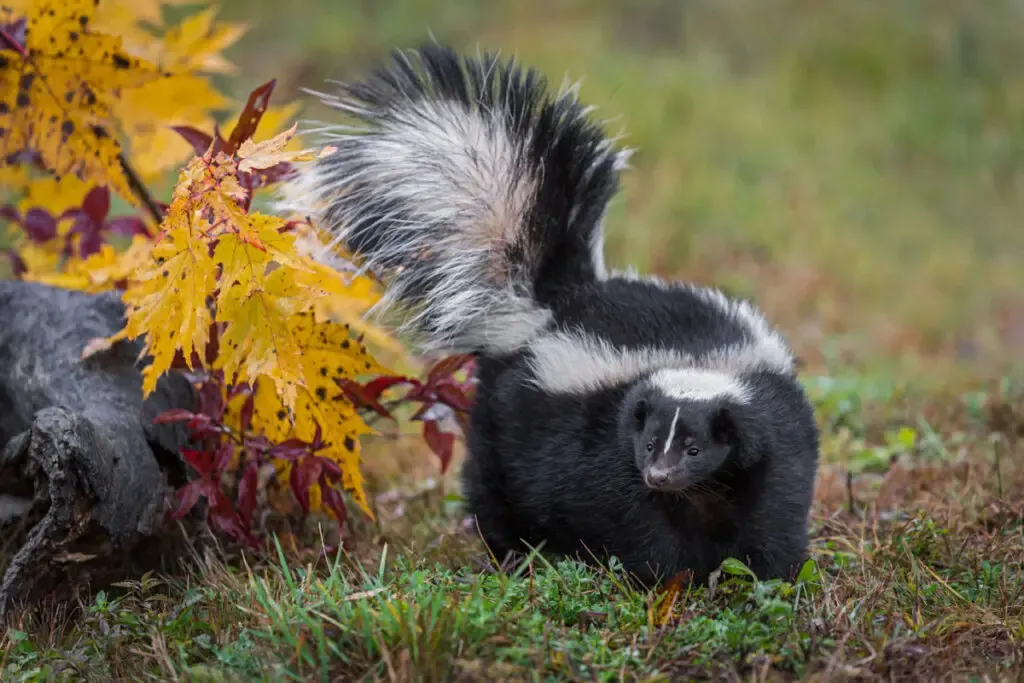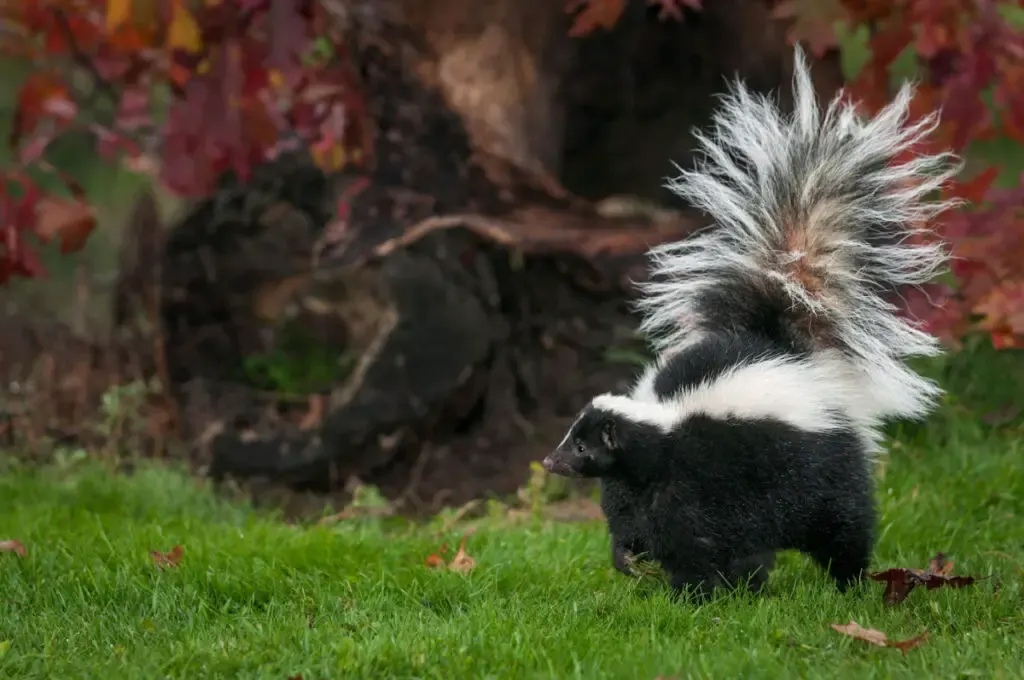Knowing how stinky a skunk’s defensive spray can be and knowing skunks are one of the most common reservoirs of rabies, you wouldn’t want one to attack you. But do skunks really attack humans?
Table of Contents
Do skunks attack humans?
Recognizing the size difference between them and humans, skunks do not go out looking to attack humans. However, if they sense a threat from humans, they may become aggressive. When this happens, they may attack humans.
Skunks might be small, but you do not want one attacking you for sure. Besides the offensive smell of their defensive spray, skunks may carry the rabies virus in their saliva. So, if they bite you during an attack, things might go bad really fast.
If you have skunks in your yard and you are unsure of how to avoid an attack, we have a guide for you. Below, you will find 4 prevention tips for a skunk attack.

Will a Skunk Attack Me?
Humans are bigger than skunks, so more times than not, skunks would rather avoid them. But then, if you make a skunk feel threatened, it may attack you while trying to defend itself.
One thing with skunks is they do not have superb vision. So, they may not easily see you coming, and you might startle them even when you try not to.
Of course, if you startle an animal, it may take that as a threat and attack you to save itself.
Most people know that a skunk may release its defensive spray when threatened. Those who have been skunked before know just how bad the odor can be.
Luckily, if you get skunked, you might be able to get the stench out with a skunk odor remover. If you do not have that, you could prepare a mixture of hydrogen peroxide, baking soda, and liquid dish soap.
A skunk attack can be much worse than just getting skunked. If you corner or try to handle a skunk, it may scratch or bite you.
If a skunk scratches you, you may bleed. But besides bleeding, you could get an infection if its claw introduces a pathogen into your blood. There is a chance that the infection could be rabies. The same applies if the skunk bites you. Although, the chances of getting rabies are higher if you get bitten.

4 Tips to Prevent a Skunk Attack
Knowing the possible outcomes of a skunk attack, I’m sure you don’t want to be a victim. So, we compiled the tips below to help you avoid an attack.
Be Careful When Walking in the Dark
Skunks are nocturnal, so they typically move around at night and dawn. So, if you have noticed skunks around your property, be careful when walking in the dark.
Look out for skunks when walking, and if you see a skunk around, try to avoid it. You should change direction or do whatever you can to avoid getting in the path of the animal.
Find the Skunk’s Den and Get a Professional to Remove It
If you have seen skunks around your property, try to find the spot where their den is.
Skunks typically build their dens underneath areas such as:
- Decks
- Rock crevices
- Culverts
- Concrete pads
- Sheds
- Wood piles
So, while trying to find the skunk den, look for any such areas around your property.
When looking for the skunk den, look around for clues such as droppings, skunk tracks, fur, and a musky smell. These signs are typically around places where skunks live.
You can try watching the skunk when it is traveling around your property. You may just figure out where it lives by watching.
When you finally find the skunk den, get professional wildlife services for the removal. Professionals can get the skunk away from your property in a way that is safe for everyone, including the animal.
After removing the skunk from your compound, ensure you seal the den and other possible hiding areas. The best idea is to block those areas with heavy gauge screening. This way, skunks and other animals will not return to reclaim the spot.
Look Out for Signs That the Skunk Wants to Spray
Before going in search of the skunk’s den, learn spraying signals. With that knowledge, you would be able to avoid getting skunked.
When a skunk raises its tail, stands on its hind legs, and pushes its front legs towards the ground, it is about to spray.
Retrace your steps quietly and slowly at this point, so the skunk will not spray you.
Try Some Skunk Repellents
Instead of getting professional help with removing the skunk, you could try deterring the skunk with repellents.
You can deter skunks with harsh odors by doing any of the following:
- Dilute washing detergent with water and mix with castor oil. Spray this mixture around the skunk den when the skunk is away.
- Distribute predator urine around the skunk den. You can buy predator urine at a garden center.
- Try placing ammonia-soaked rags in your yard and around the den. The smell will evaporate with time, so you may have to replace the rags frequently.
- You may also try littering the yard with lemon or orange peels. The smell of citrus may deter skunks.
Besides harsh odors, you may try keeping skunks away with light. Skunks have very light-sensitive eyes. So, exposing them to very bright light – like motion sensor flood light – might scare them away.
Final Thoughts
Skunks can attack humans, but this is a rare occurrence, and it only happens when the skunks feel threatened.
If you have skunks around your property, you may want to walk carefully at night. Beyond that, try to find the skunks’ den and get a professional to remove them from your property.
Resources
- https://www.skedaddlewildlife.com/blog/methods-to-avoid-a-skunk-attack/
- https://www.chicagotribune.com/suburbs/elgin-courier-news/ct-ecn-skunks-st-0324-2-20150327-story.html
- https://www.andersonwildlifecontrolllc.com/what-to-do-if-you-encounter-a-skunk/
- https://www.skedaddlewildlife.com/blog/what-diseases-do-skunks-carry
- https://www.cdc.gov/rabies/transmission/index.html
- https://www.almanac.com/pest/skunks
- https://www.hgtv.com/outdoors/gardens/animals-and-wildlife/making-a-stink-how-to-keep-skunks-out-of-your-garden
